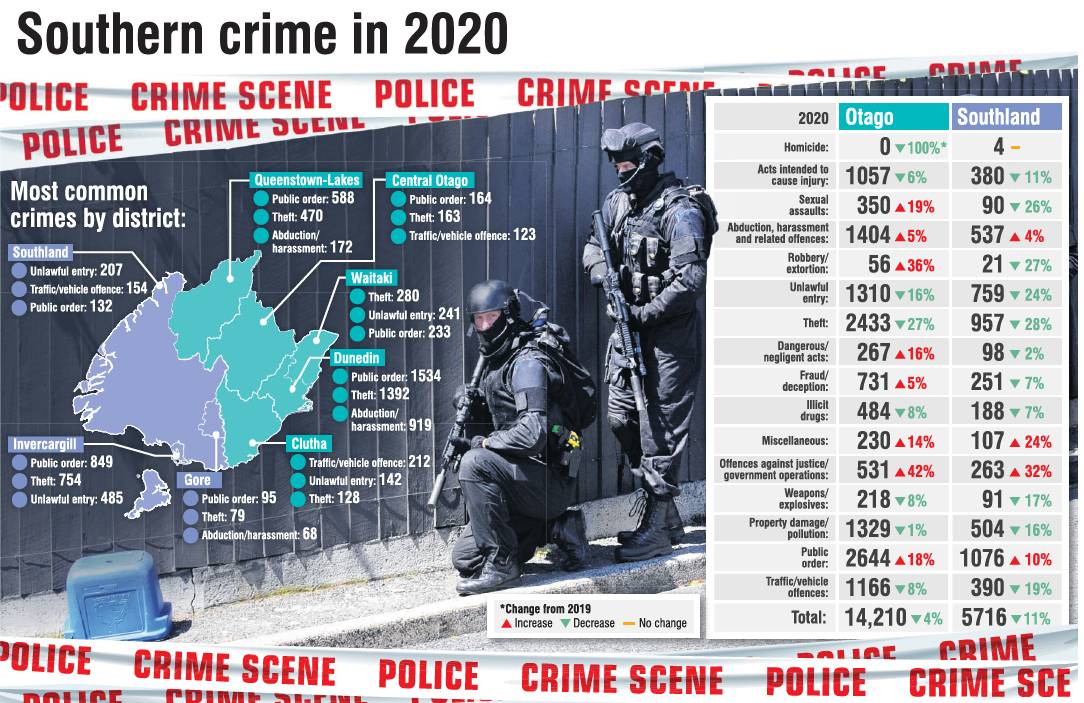
The number of offenders sent to court has also fallen, as police try to keep first-time offenders out of the justice system.
Police data shows decreases in thefts, drug crime, unlawful entry, traffic offences and acts intended to cause injury in both Otago and Southland last year.
Police say increased focus on prevention and targeting burglaries is paying off, the South having one of the best burglary resolution rates in the country.
Some incidents did skew upward, mainly public order offences and offences against justice/government operations, which likely included breaches of lockdown orders last year.
Southern District prevention manager Inspector James Ure said Southern police had been focusing on burglaries, increasing attendance and investigations.
"Southern’s been a very strong performer ... in our clearance of burglaries," he said.
"We sit at a 17% clearance rate, which is the envy of most of the rest of the country."
The Evidence-Based Policing Centre in Wellington had also been supporting Southern police to determine priority areas for crime prevention and patrols, in a bid to reduce harm.
Thefts dropped 27% in Otago last year, from 3374 in 2019 to 2433, and 28% in Southland, from 1337 to 957.
Unlawful entries dropped 16% in Otago and 24% in Southland.
On the other hand, public order offences rose 18% in Otago, from 2237 to 2644, and 10% in Southland, from 975 to 1076.
It was the most common offence in the Central Otago, Dunedin, Gore, Invercargill, and Queenstown-Lakes districts last year.
Insp Ure said police had stepped up efforts to be proactive when it came to alcohol-related offending, which he thought could have driven the increase in public order jobs.
The decrease in recorded incidents was also reflected in outcome statistics.
In the Southern police district there were 9360 proceedings last year, compared with 10,464 in 2019.
The figures showed a trend away from court action towards other measures, something Insp Ure said was deliberate.
In 2019, court action made up 58% of outcomes. That dropped to 53% last year.
Meanwhile, informal and formal warnings increased from 29% of outcomes in 2019 to 35% last year.
"We’re making a conscious effort to decrease pathways into the criminal justice system for first-time offenders, to reduce recidivism."
One example of that was the Te Pae Oranga community justice panel in Southland, which had been a big success, he said.
In the Southern district last year, public order offences received the most formal warnings, at 452.
The most informal warnings were handed out for drug offences, at 231.
Comments
Disappointing that this story almost totally fails to factor in the effect the lockdown would've had on these figures. With the area confirmed to their homes for several months of course the type of policing issues were different. The court system was also hugely affected by this period.












